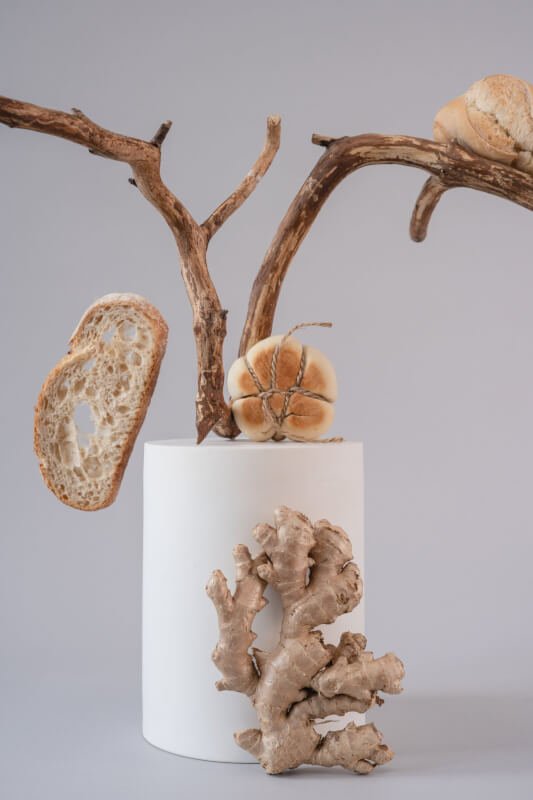You love cooking with fresh herbs, but keeping them fresh for longer can be a challenge. The good news is that there are several simple and effective ways you can store fresh herbs to ensure they stay vibrant and flavorful for as long as possible. From freezing them in ice cubes to creating a makeshift herb garden in your kitchen, this article will explore the best ways to store fresh herbs so you can enjoy their deliciousness for weeks to come.

1. Choosing Fresh Herbs
When it comes to storing fresh herbs, the first step is to choose the freshest ones available. This ensures that you have high-quality herbs that will last longer. Here are a few tips for picking fresh herbs:
1.1 Picking Fresh Herbs
When picking herbs, look for vibrant, green leaves that are not wilted or discolored. The leaves should be fragrant, with a strong aroma indicating their freshness. Avoid herbs that have yellow or brown spots as this can be a sign of decay.
1.2 Removing Damaged Leaves
Once you have gathered your fresh herbs, it is important to remove any damaged leaves. These leaves can affect the freshness of the rest of the herb bunch and shorten its shelf life. Simply pluck off any bruised or discolored leaves and discard them.
1.3 Washing and Drying Herbs
Before storing your herbs, it is essential to wash them to remove any dirt or contaminants. Gently rinse them under cold water and pat them dry with a clean towel or paper towel. It is crucial to ensure that the herbs are completely dry before storing them, as moisture can lead to spoilage.
2. Storing Herbs at Room Temperature
Storing herbs at room temperature is a great option if you plan to use them within a few days. Here are some methods for storing herbs at room temperature:
2.1 Using a Damp Paper Towel
One way to keep herbs fresh at room temperature is by wrapping them in a damp paper towel. Start by wetting a paper towel and wringing out any excess water. Then, place the herbs on the damp paper towel and roll it up loosely. Store the wrapped herbs in a plastic bag or airtight container to retain moisture.
2.2 Placing in a Jar with Water
Another method is to treat herbs like cut flowers. Fill a glass jar with a few inches of water and place the herb stems in the jar. Cover the herbs loosely with a plastic bag and store them at room temperature. This method works well for herbs with sturdy stems like parsley or cilantro.
2.3 Wrapping in a Damp Cloth
You can also store herbs by wrapping them in a damp cloth. Moisten a clean cloth with water and squeeze out any excess moisture. Wrap the herbs gently in the damp cloth, making sure they are well-covered. Place the wrapped herbs inside a plastic bag or airtight container and store at room temperature.
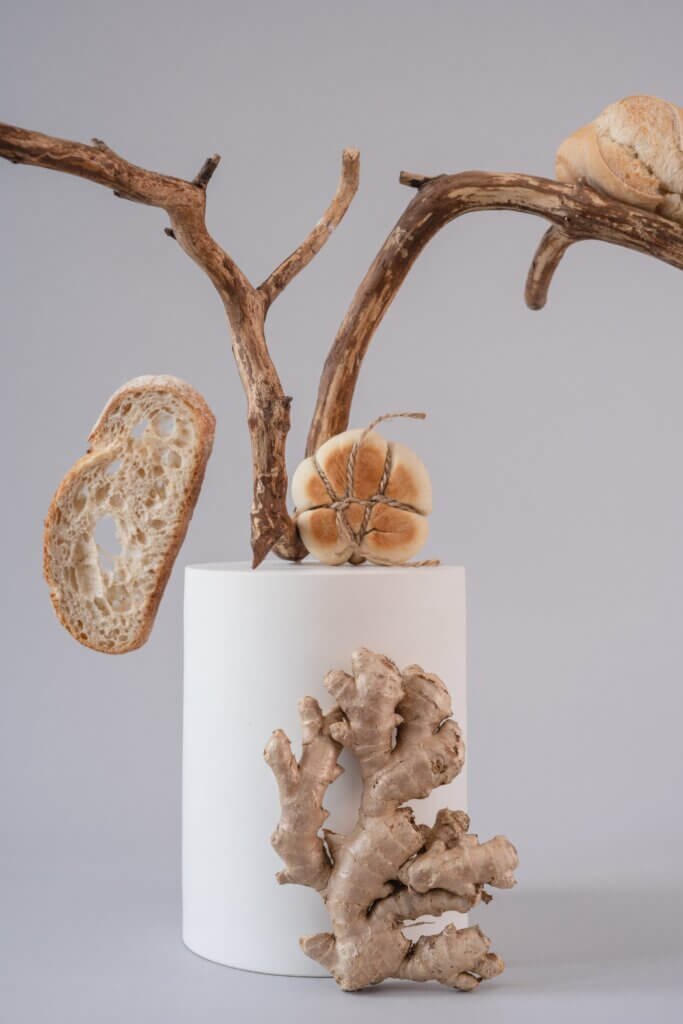
3. Refrigerating Fresh Herbs
Refrigeration is an effective method for extending the shelf life of fresh herbs. Here are some ways to store herbs in the refrigerator:
3.1 Storing Herbs in a Ziplock Bag
Place the herbs in a ziplock bag and seal it tightly, removing as much air as possible. This helps to prevent moisture loss and keep the herbs fresh for longer. Label the bag with the herb name and date for easy identification. Store the bag in the refrigerator’s crisper drawer or the door, which provides a cool but not freezing environment.
3.2 Using a Plastic Container
Another option is to use a plastic container with a lid. Place the herbs inside, making sure they are not overcrowded. To create a humid environment, add a damp paper towel or cotton ball to the container. Seal the lid tightly and store it in the refrigerator.
3.3 Creating an Herb Bouquet in the Fridge
For herbs with long stems like dill or thyme, create an herb bouquet. Trim the ends of the herb stems and place them in a glass of water. Cover the herbs with a plastic bag to maintain humidity and store them in the refrigerator. This method keeps the herbs hydrated and fresh for an extended period.
4. Freezing Fresh Herbs
Freezing herbs is an excellent way to preserve them for a more extended period. Here are some methods for freezing fresh herbs:
4.1 Flash Freezing Method
The flash freezing method involves individually freezing the herb leaves before storing them together. Start by spreading the herb leaves on a baking sheet in a single layer. Place the baking sheet in the freezer for a few hours until the leaves are frozen. Once frozen, transfer the herb leaves to an airtight freezer bag or container. This method allows you to easily measure out the desired amount of herbs when needed.
4.2 Herb-infused Ice Cubes
For herbs like mint or basil, you can create herb-infused ice cubes. Chop the herbs finely and place them in an ice cube tray. Fill each compartment with water or olive oil, depending on your preference. Freeze the tray until the cubes are solid, then transfer them to a freezer bag or container. These herb-infused ice cubes can be added directly to recipes, providing a burst of fresh flavor.
4.3 Air-tight Freezer Bags or Containers
Alternatively, you can store herbs in airtight freezer bags or containers without flash freezing. Simply wash and dry the herbs thoroughly before placing them in the bag or container. Label the bag with the herb name and date and store them in the freezer. This method works well for herbs like rosemary or thyme, which are often used in cooked dishes.
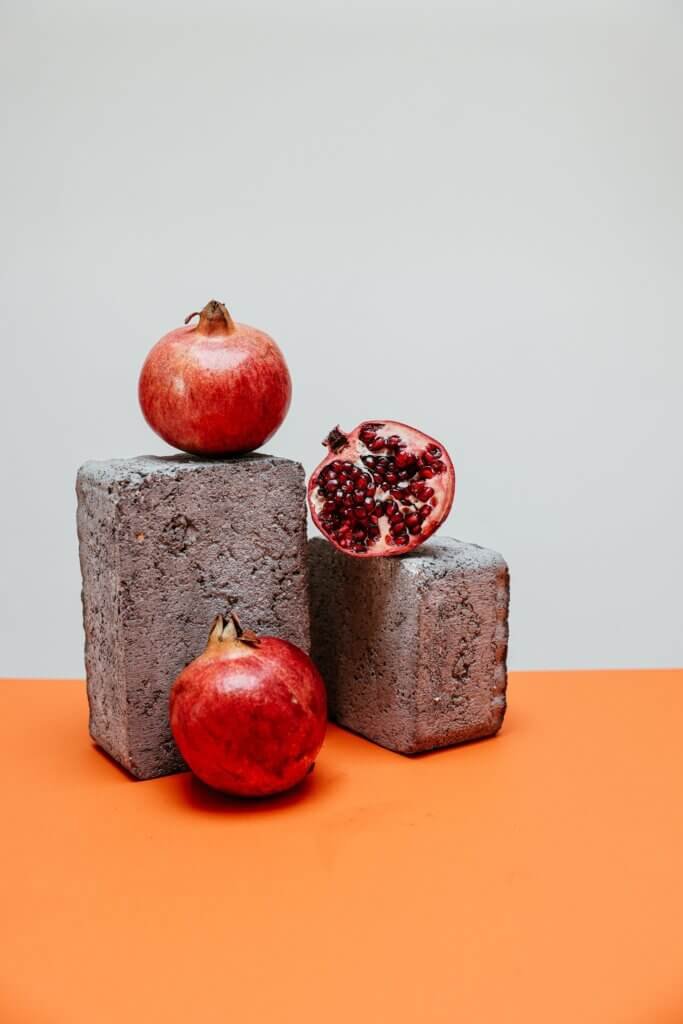
5. Drying Fresh Herbs
Drying herbs allows you to enjoy their flavors and aromas long after their harvest season. Here are some techniques for drying fresh herbs:
5.1 Air Drying
To air dry herbs, gather a bunch of herb sprigs and tie them together at the stems with kitchen twine. Hang the herb bundle upside down in a cool, well-ventilated area away from direct sunlight. Allow the herbs to dry completely, which typically takes around two weeks. Once dry, remove the leaves from the stems and store them in airtight containers away from moisture and heat.
5.2 Microwave Drying
For a quicker drying method, you can use a microwave. Place the herb sprigs on a microwave-safe plate lined with a paper towel. Microwave the herbs on high in 30-second intervals, flipping them after each interval. Check for dryness, and continue microwaving in shorter intervals if needed. Once dry, remove the leaves from the stems and store as desired.
5.3 Using a Dehydrator
If you have a food dehydrator, it can be an efficient tool for drying herbs. Follow the manufacturer’s instructions for drying herbs, as each dehydrator may have different settings and times. Place the herb sprigs on the dehydrator trays and set the temperature according to the herb’s requirements. Once dry, remove the leaves from the stems and store them in airtight containers.
6. Preserving Herbs in Oil or Butter
Preserving herbs in oil or butter is a wonderful way to infuse their flavors and extend their shelf life. Here are two methods for preserving herbs in oil or butter:
6.1 Infusing Herbs in Oil
To infuse herbs in oil, wash and dry the herbs thoroughly before removing the leaves from the stems. Place the herb leaves in a clean glass jar and cover them with your choice of oil (such as olive or sunflower oil). Ensure that the herbs are fully submerged in the oil and seal the jar tightly. Store the jar in a cool, dark place for a few weeks to allow the flavors to meld. Strain the oil to remove the herbs before using it in cooking or as a dressing.
6.2 Making Herb Butter
Herb butter is another delicious way to preserve herbs and add flavor to dishes. Soften unsalted butter and finely chop the desired herbs. Mix the herbs into the softened butter until well combined. Shape the butter mixture into a log shape using plastic wrap or place it in a small container. Refrigerate or freeze the herb butter until solid. When needed, slice off a portion of the butter and use it to enhance the taste of vegetables, bread, or grilled meats.
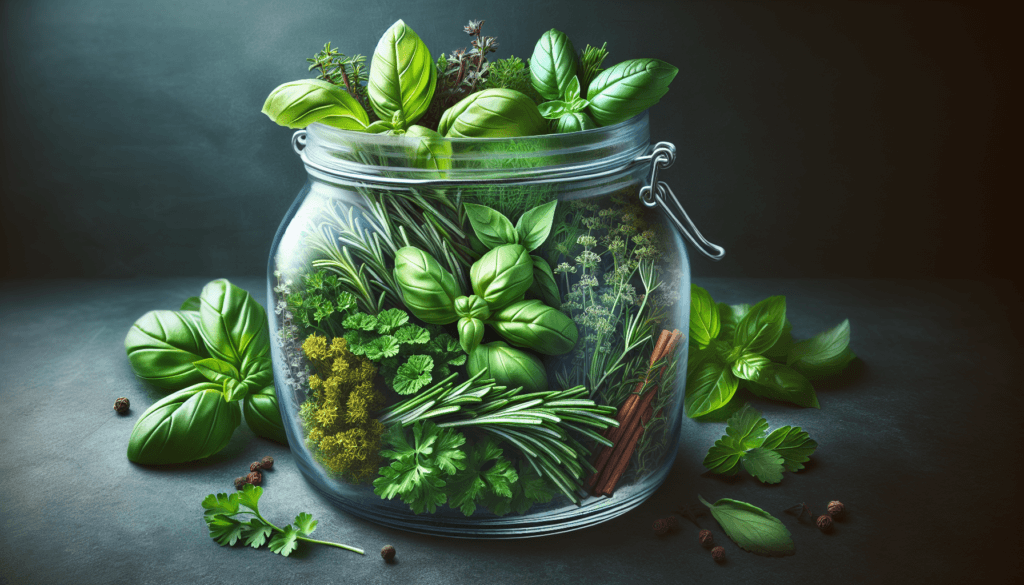
7. Using Salt to Store Fresh Herbs
Salt can be a valuable ally in preserving and enhancing the flavors of fresh herbs. Here are two methods for using salt to store fresh herbs:
7.1 Making Herb Salt
To make herb salt, simply combine equal parts finely chopped fresh herbs and coarse sea salt in a bowl. Mix the herbs and salt together until well distributed. Spread the herb salt mixture on a baking sheet lined with parchment paper and let it air dry for several days. Once dry, store the herb salt in an airtight container. Herb salt is great for seasoning dishes or as a finishing touch.
7.2 Making Herb Vinegar
Herb vinegar adds a tangy kick to your recipes while preserving the flavors of fresh herbs. Fill a clean glass jar with your choice of vinegar (such as white wine or apple cider vinegar). Add washed and dried herb sprigs to the jar and seal it tightly. Store the jar in a cool, dark place for several weeks, allowing the herbs to infuse into the vinegar. Strain the vinegar to remove the herbs and use it in dressings, marinades, or whenever a herb-infused vinegar is called for.
8. Herb Storage Tips
To ensure optimal freshness and longevity of your herbs, consider these additional herb storage tips:
8.1 Properly Labeling Herb Containers
Whether you are storing herbs in the refrigerator, freezer, or pantry, labeling the containers is crucial. This helps to easily identify the herbs and keep track of their storage duration. Use adhesive labels or write directly on the containers with the herb name and date of storage.
8.2 Storing Seeded Herbs Separately
If you are storing herbs that have seeds, like coriander or dill, it is best to remove the seeds before storing. The seeds can impart a bitter taste and accelerate the herb’s deterioration. Store the seeds separately in an airtight container and use them within their recommended shelf life.
8.3 Avoiding Moisture and Direct Sunlight
Moisture and direct sunlight can shorten the shelf life of herbs. Store herbs in airtight containers or bags to prevent moisture from seeping in and causing spoilage. Additionally, keep herbs away from direct sunlight, as prolonged exposure can lead to wilting and loss of flavor.
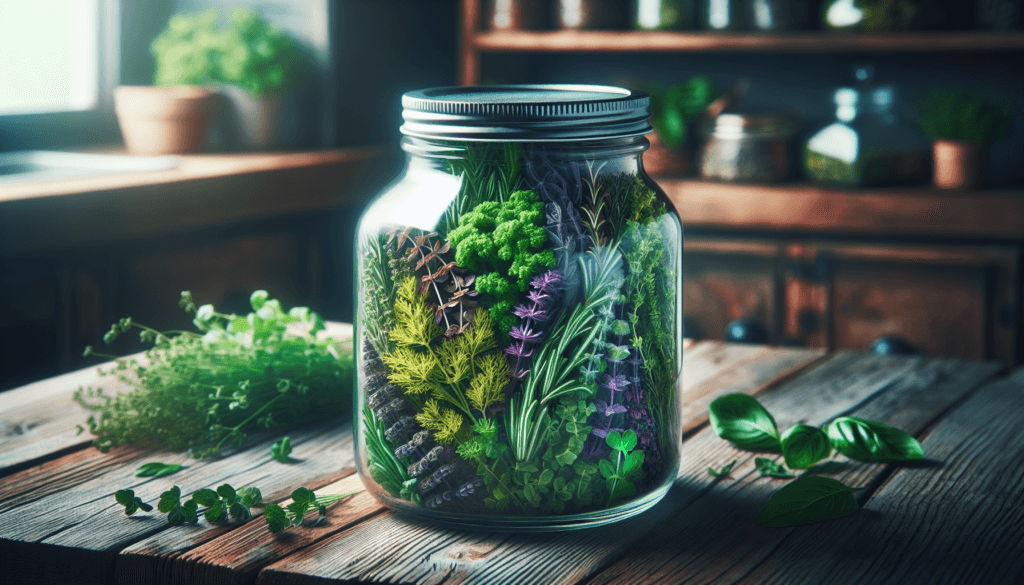
9. Reviving Wilted Herbs
If your herbs have started to wilt or lose their freshness, don’t despair! Here are two methods to revive them:
9.1 Refreshing Herbs in Water
To refresh wilted herbs, give them a quick revitalizing water bath. Fill a bowl with cold water and immerse the herbs for a few minutes. Gently swish the herbs around to remove any dirt or impurities. Remove the herbs from the water and pat them dry with a towel. This method can help rejuvenate the herbs, making them perkier and more vibrant.
9.2 Sprinkle with Lightly Salted Water
Another way to revive wilted herbs is by lightly salting them. Mix salt with water, creating a lightly salted solution. Sprinkle the solution over the herbs, coating them lightly. Allow the herbs to sit for a few minutes, then rinse them under cold water and gently pat them dry. The saltwater acts as a rehydrating agent, restoring the herbs’ vitality.
11. Frequently Asked Questions
11.1 How long can fresh herbs be stored?
The storage duration of fresh herbs varies depending on the type of herb and the storage method used. In general, leafy herbs like parsley, cilantro, and dill can be stored for up to two weeks when refrigerated properly. Hardier herbs like rosemary and thyme can last up to three weeks when stored in the refrigerator. Drying or freezing herbs extends their shelf life significantly.
11.2 Can frozen herbs be used in recipes?
Yes, frozen herbs can be used in recipes. They may have a slightly different texture after freezing, but their flavors remain intact. When using frozen herbs, add them directly to dishes without thawing. Frozen herbs are particularly useful in cooked dishes like soups, stews, and sauces.
11.3 Can dried herbs be used as a substitute for fresh herbs?
Yes, dried herbs can be used as a substitute for fresh herbs, but it is essential to adjust the quantity. As dried herbs are more concentrated in flavor, using three times less dried herbs than fresh herbs is usually recommended. However, it is worth noting that dried herbs may not provide the same intensity and freshness as their fresh counterparts. It’s best to use dried herbs in recipes that require longer cooking times to allow the flavors to develop fully.

